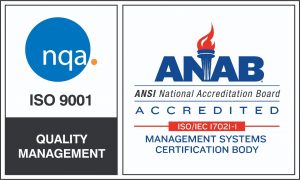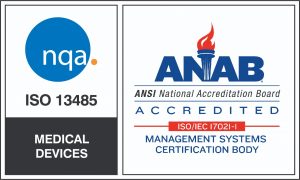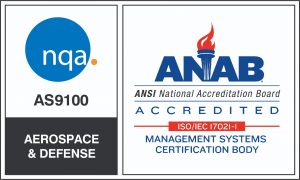 Creating devices for the medical industry requires extensive experience and knowledge of industry requirements. Medical devices are highly regulated for both quality and reliability. This is important, as many people rely on the safety and efficiency of medical devices. Perhaps more than any other industry, OEMs planning to produce products for the medical industry should partner with an experienced electronic contract manufacturer.
Creating devices for the medical industry requires extensive experience and knowledge of industry requirements. Medical devices are highly regulated for both quality and reliability. This is important, as many people rely on the safety and efficiency of medical devices. Perhaps more than any other industry, OEMs planning to produce products for the medical industry should partner with an experienced electronic contract manufacturer.
In addition to understanding how to comply with government regulations, an experienced ECM should meet the following requirements. This can help ensure a successful and mutually beneficial partnership.
Experienced Technical and Managerial Team
The more experienced the electronic contract manufacturer is, the more likely they can help when problems arise. ECMs with experience producing a wide range of devices can often locate problems and suggest viable solutions based on findings from previous projects. In addition to solving problems that arise during production, experienced ECMs can assist with design-for-manufacture review, saving OEMs a considerable amount of time and money on assembly.
Well Maintained Equipment
It’s not enough for an ECM to have quality equipment. They need to properly maintain it to ensure continuous and reliable operation. Calibration of machines and tools should take place at regular intervals.
Proper maintenance not only helps ensure on-time delivery of high quality products, it also allows the ECM to achieve the right tolerance. This is especially important as the medical device industry has stringent tolerance requirements.
Ability to Adjust to Meet Customer Changes
Needs and requirements can change. This is why it’s so important that OEMs select an agile, flexible, and highly responsive ECM to work with.
ISO 13485 Quality Management System
The international standard for a quality management system for the medical device industry, ISO 13485 is designed to be used throughout the entire lifecycle of the medical device. Using ISO 13485, organizations can develop a quality management system that ensures the quality of finished products and the effectiveness of manufacturing processes.
Means Engineering offers electronic manufacturing services for the medical device industry. Our extensive experience and quality management system allows our team to manage risk effectively and bring safe and effective products to market.
 Outsourcing makes it possible for businesses to bring products to market faster and for less money than possible with in-house production. When OEMs partner with a quality electronics manufacturer they gain access to the tools, people, equipment, and technology needed to produce a wide range of products. This provides numerous benefits and can give the OEM a competitive advantage. However, it’s important that companies considering outsourcing take their time to learn as much as they can and locate an experienced ECM.
Outsourcing makes it possible for businesses to bring products to market faster and for less money than possible with in-house production. When OEMs partner with a quality electronics manufacturer they gain access to the tools, people, equipment, and technology needed to produce a wide range of products. This provides numerous benefits and can give the OEM a competitive advantage. However, it’s important that companies considering outsourcing take their time to learn as much as they can and locate an experienced ECM. Recent events have led business owners scrambling for ways to recover lost revenue and business. For many OEMs, staff reductions and reduced income has significantly decreased production capacity. Unfortunately, organizations wishing to remain competitive and recover lost revenue need to ensure consistent market presence.
Recent events have led business owners scrambling for ways to recover lost revenue and business. For many OEMs, staff reductions and reduced income has significantly decreased production capacity. Unfortunately, organizations wishing to remain competitive and recover lost revenue need to ensure consistent market presence. Entrepreneurs and companies often turn to outside partners to design and produce their products. Farming out production provides numerous benefits. In addition to costing less than producing products in-house, using an outside firm provides access to people with years of experience building a wide range of products. Although the process of outsourcing might be called by several different names, most know it as contract manufacturing.
Entrepreneurs and companies often turn to outside partners to design and produce their products. Farming out production provides numerous benefits. In addition to costing less than producing products in-house, using an outside firm provides access to people with years of experience building a wide range of products. Although the process of outsourcing might be called by several different names, most know it as contract manufacturing. You have many things to consider when choosing an electronics contract manufacturer. Although you’ll probably spend some time negotiating price and other important aspects of your contract, electronic manufacturing certifications should remain non-negotiable. These important industry certifications ensure the CM you work with meets rigorous quality expectations as required by the industries they serve. Without proper certification, the CM simply cannot guarantee quality or that the product produced meets industry-specific regulatory compliance standards.
You have many things to consider when choosing an electronics contract manufacturer. Although you’ll probably spend some time negotiating price and other important aspects of your contract, electronic manufacturing certifications should remain non-negotiable. These important industry certifications ensure the CM you work with meets rigorous quality expectations as required by the industries they serve. Without proper certification, the CM simply cannot guarantee quality or that the product produced meets industry-specific regulatory compliance standards.

